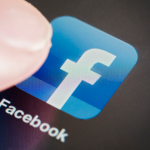It might not be too surprising that the high-profile Twitter hacking incident from earlier this month, the one that hit Kanye West, Barack Obama, and Jeff Bezos, alongside some other big shots in the global entertainment, tech and politics ended up being leaving more mess than the platform initially thought it would.
On Wednesday night, Twitter official support team dropped a thread, the tweet revealed that 36 of the 130 accounts that were hacked ended up having their direct messages accessed. Amongst them was one elected official in the Netherlands, to date, they have not indicated that any other current or previously elected officials had their DMs accessed.

Although Twitter didn’t reveal the name with this announcement, the Dutch expert, Geert Wilders, revealed his account was in the middle of all this, making it known that the hackers used that access to send direct messages in his which he still hasn’t gotten over as he put it as “unacceptable”.
In some ways, it is so shocking that Wilder had his account hacked in the Great 2020 Twitter Hack. Sometime now, his outwardly Islamaphobic opinions, business-savvy background, and obvious dye job have earned him comparisons as a Dutch Donald Trump. And while his account was tagged as a part of the event, Donald Trump’s was weirdly untouched, which is as a result of stronger protections Twitter uses to safeguard his account. If it wasn’t there, I’m pretty sure he would have gotten his account compromised as well.
The hack brought up and an argument for Twitter to start using end-to-end encryption on its messaging service, which users have been begging the organization to do for years. Not only did they have it in mind, but Twitter also went as far as promising at least one senator that the company was already working on it. Ever since, media analyst Matt Navarra has come out to say that sources within the company had reportedly shelved the encryption idea back in 2019, with no plans to dust it off anytime soon.
TECH NEWS>>>>Reply With Emoji Now On Google Message





